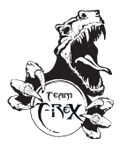Top 6 Reasons You Need Sodium in Your Life
Sodium is not to be feared! Just stop it.
If you’re reasonably healthy, fit and training regularly, sodium is one of the few minerals that can noticeably improve your physique as well as your performance in the gym.
That’s because our bodies need a certain amount of sodium for optimal cellular functioning, regulating fluid balance and to drive muscular contractions in the gym. Restrict it and your physique, metabolism, training performance and even your overall feeling of well-being will start to suffer.
So, although some people may think they’re doing themselves a favor by eliminating it from their diet, it’s actually counterproductive to do so…particularly for bodybuilders. In this blog post, I’ll provide an overview on 6 reasons why you shouldn’t avoid sodium…unless you have a medical reason to do so (i.e. high blood pressure, etc).
1. The Pump. Sodium regulates extracellular fluid and can help to stimulate an intense pump with training. As muscles contract, they draw fluid (i.e. water) and blood into the area. If you’re not consuming any salt in your diet, you’ve got less extracellular fluid to work with and your ability to volumize your cells during training is significantly reduced. But it’s not just fluid balance! Research studies have also confirmed that consuming salt in the pre-workout meal can literally double blood flow to skeletal muscles during exercise.
2. Muscle Contractions. Sodium plays a key role in driving skeletal muscle contractions. People who regularly consume sodium in their diets, (particularly with the pre-workout meal) are in a way “pre-charging” up their muscle cells at the membrane for a more efficient, powerful contraction, resulting in increased force production and blood flow to the area. Restrict sodium and your strength will be reduced due to the muscle cells lower “charge” at the membrane. You can still contract the muscle obviously, but total force as well as endurance capacity will be decreased.
3. Blood volume. Restricting sodium will result in a lower total blood volume. Blood volume refers to the total amount of blood circulating in our bodies. With a lower blood volume, this results in less oxygen and nutrients available to be delivered to training muscles and a higher build up of metabolic wastes like lactic acid and ammonia. Essentially, having a lower blood volume gives you less to work with for your training and you’ll be a little weaker in the gym. On carb and calorie controlled diet, we need sodium even more to maintain strength and performance in the gym.
4. Optimal electrolyte balance. All the other minerals such as potassium are highly dependent on the availability of sodium for routine physiological functioning. One key role sodium plays is to help get potassium into the cell via active transport. (it takes 3 sodium molecules to get one potassium into the cell). Potassium, an intracellular mineral can’t get into the muscle cell without plenty of sodium present. Restrict sodium and your muscle cells will not be as full, hard and dense – partly a result of less intracellular fluid and minerals in the muscle cell.
5. Optimal Metabolism. On a prolonged low-sodium diet, the body can lower the basal metabolic rate because sodium intake stimulates energy metabolism, increases CO2 production and plays roles in many stress reactions. All of these things account for caloric expenditure. If they aren’t happening at an optimal rate, the metabolism will be adjusted lower.
6. Aldosterone. Restricting sodium will cause aldosterone to increase, resulting in the reabsorption of sodium. Translation…try to eliminate sodium from your diet and your body’s key fluid regulating hormone will attempt to retain every sodium molecule possible. (remember that as you retain sodium, you also retain water) On the flip side, consume sodium regularly with your meals and aldosterone will be kept low and your body will receive the signal to excrete any excess sodium (with water) – a much better position to be in!
How much sodium do we need?
Hard training athletes should be consuming in the area of 2000 mg – 5000 mg / day , adjusted by bodyweight, temperature and amount of sweating.
Coach Sean





